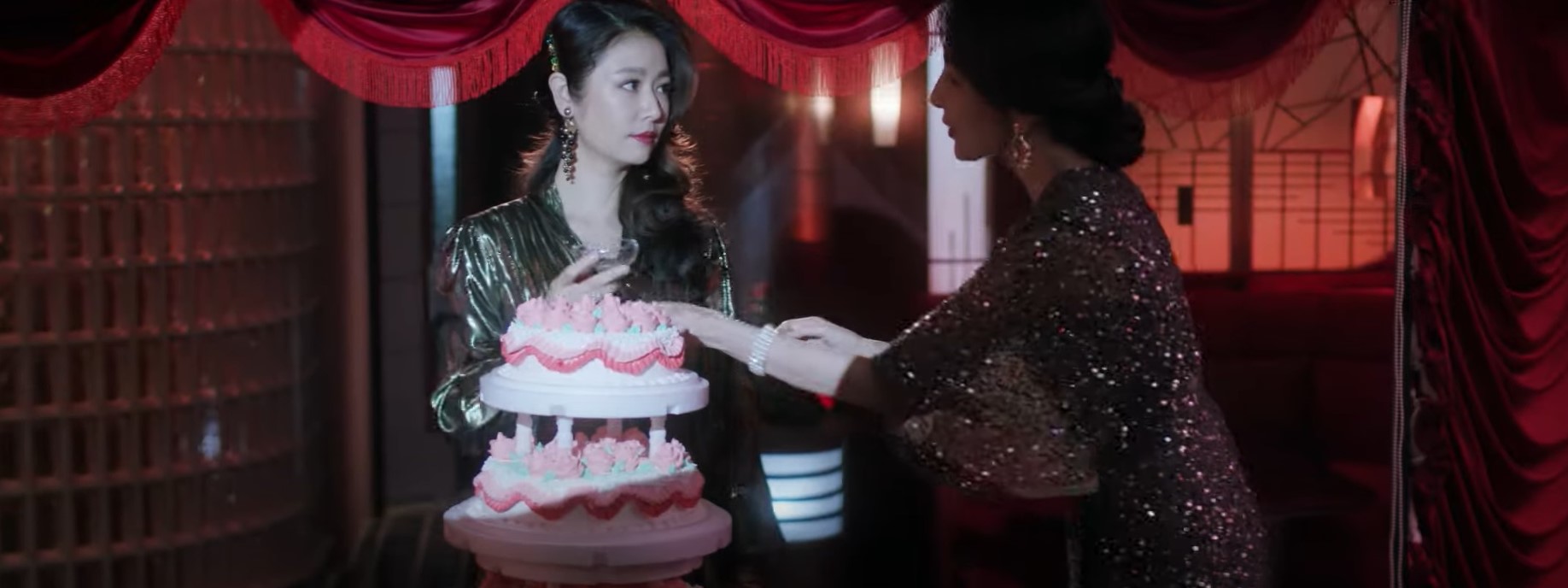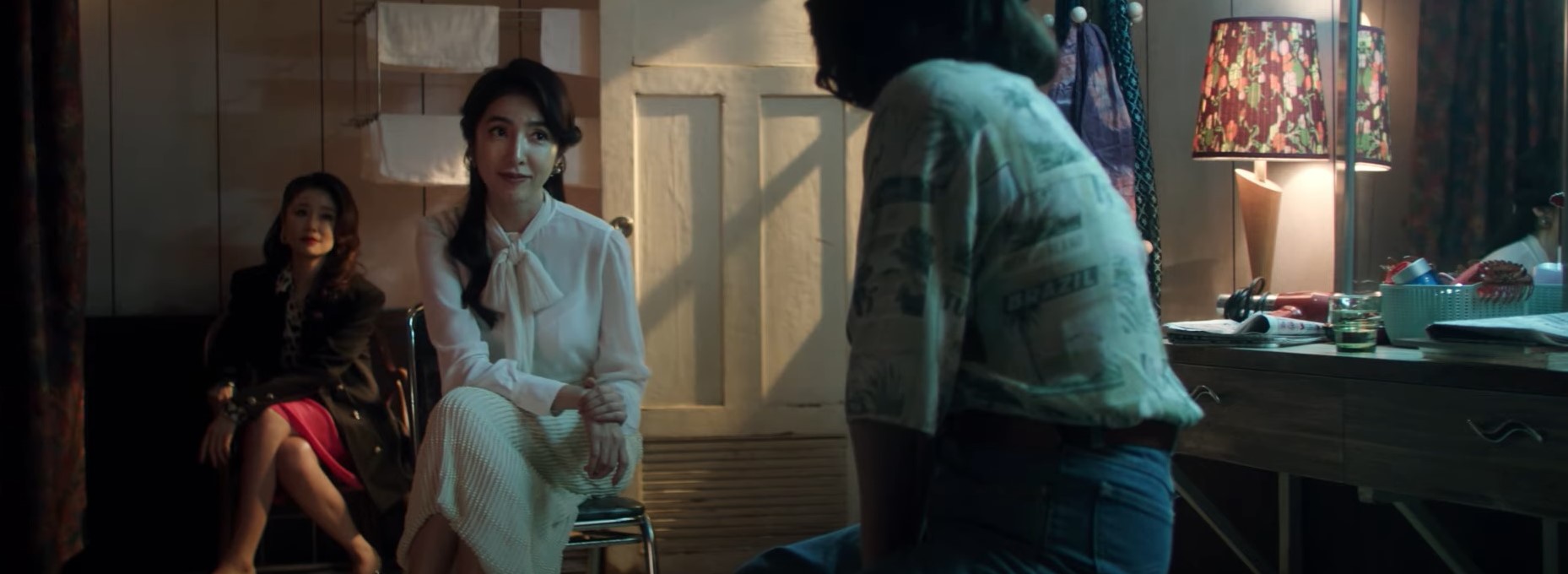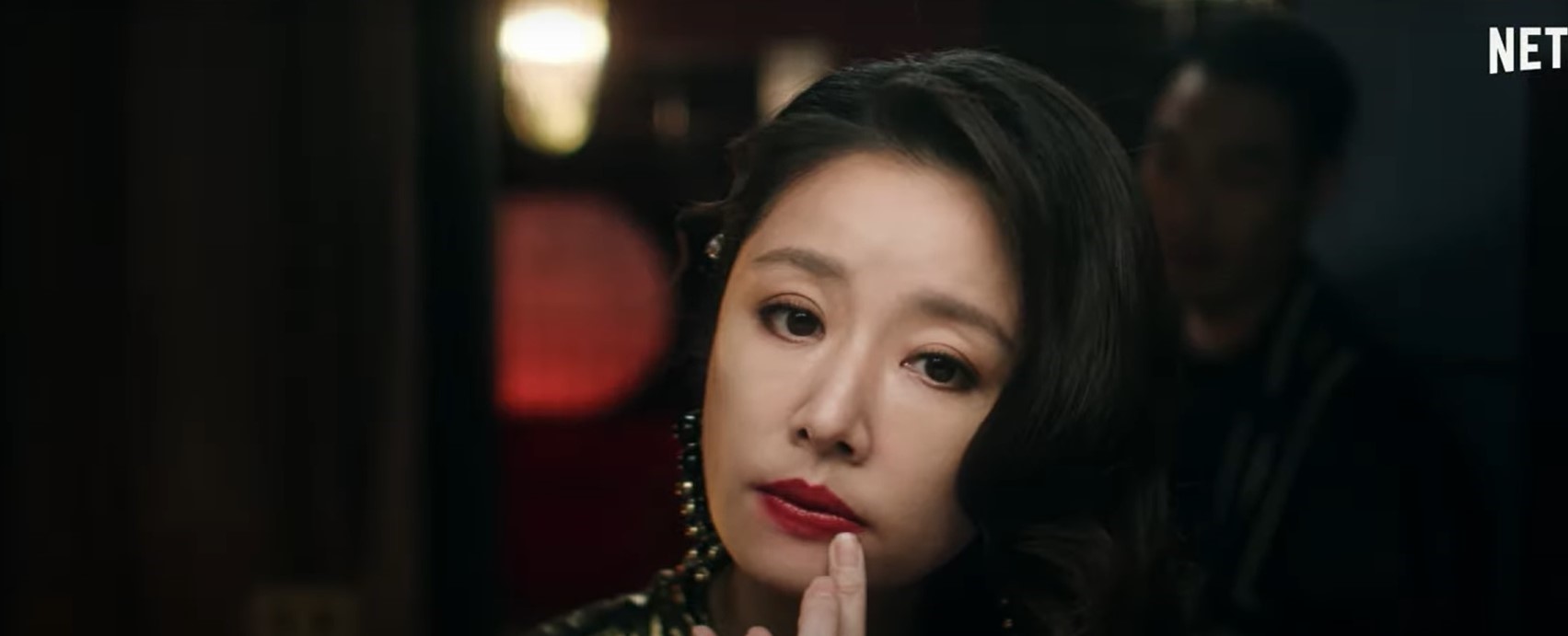Netflix’s ‘Light the Night’ combines a period romance with a murder mystery in order to explore the fascinating lives of the nightclub hostesses in Tiaotong, Taipei, in the late 1980s. In particular, the Chinese-language drama revolves around mama-san Rose and the hostesses that work under her at Light, a popular nightclub in the city’s red-light district. The series sees Ruby Lin, Rhydian Vaughan, Cheryl Yang, and Derek Chang in pivotal roles.
Touching upon themes of anger, greed, jealousy, and love, the show authentically tries to represent the Japanese subculture of Tiaotong and documents the complex relationships between the hostesses and their clients. Additionally, a frightful murder in the midst of all the romantic and emotional chaos keeps us on the edge of our seats.
Although the hostesses in the show don’t entertain men using sex — keeping in line with the Japanese culture of hostess clubs and relying instead on flirty conversations, drinks, and karaoke — clearly, the job has an alarmingly high level of physical and emotional risk. Naturally, fans wonder whether the show has some amount of truth in it. Let’s find out if ‘Light the Night’ is based on a true story.
Is Light the Night a True Story?
No, ‘Light the Night’ is not based on a true story. However, it does borrow from several historical and contemporary facts pertaining to Taipei and Taiwan. Directed by Yi-chi Lien and written by Cheng Che Tu, the series took four years to develop and strives to authentically represent the Japanese subculture and vibrant nightlife of Taiwan’s red-light district.

In the fact, the team behind the show is proud of the story’s historical realism and attention to detail, which includes period-relevant costumes. “I was given the script of ‘Light the Night’ before the series went into production, and I fell in love with it instantly. I was drawn to the suspense of the murder mystery, and also fascinated by each character’s backstory,” stated Jerry Zhang, Manager of Content Acquisition at Netflix. Lin (mama-san Rose), who is also one of the producers, added, “Through this series [‘Light the Night’], we hope to introduce audiences all over the world to this Taiwanese subculture.”
The neighborhood of Tiaotong is its own character in the show — the annals of history can help us in understanding the significance of the area. In the early 20th Century, Taiwan was a colony of Japan and Tiaotong was a residential neighborhood that harbored the Japanese elite. After Japan surrendered in World War II, Taiwan was freed from its colonizer; however, several of its regions continued to hold on to their Japanese sense of identity.
Tiaotong is one such region and the series builds on the Japanese nightlife culture that developed in the area during the 1960s and maintained itself over the decades. In particular, Japanese businessmen were known to frequent the place. “It’s [‘Light the Night’] a very local story set in 1980s Taipei,” opined Zhang. “But the humanity of the story is universal. This further proves Netflix’s belief how local content can travel the world.” The characters and storylines might be fictional, but they certainly contain elements of truth, albeit exaggerated.

The show explores the personal and professional lives of those who work at hostess clubs by focusing on their interactions with clients, personal ambitions, romantic desires, and feelings of resentment brought about by constant comparison with others. Hostess clubs are generally frequented by salaried men who wish to have a good time with beautiful women through conversation and songs. However, things can often go awry despite the lack of physical relations between clients and the women entertaining them.
The murder of mama-san Sue in particular highlights the dangers the hostesses face (from drugs to violence) and how human nature, due to a quest for power and/or a burning sense of jealousy, resorts to heinous acts in desperate times. We regularly find that the women and men in the show engage in sabotage and blackmail. As hostesses of the club, the women are always exposed to alcohol, lonely men, and desperate conversations, even when they do not wish for it. They do not engage in sex work, since hostess clubs are not for sexual services, but are constantly objectified by the men who visit them.
However, we also see the characters supporting each other and trying to together combat a turbulent situation. The show focuses on what many consider to be a taboo topic by bringing forth the trial and tribulations of the fictional Light Bar’s complex and strong women. ‘Light the Night’ might not be based on a true story but it manages to insightfully portray the struggles of hostesses and the fascinating Japanese subculture of Tiaotong.
Read More: Light the Night Filming Locations


You must be logged in to post a comment.